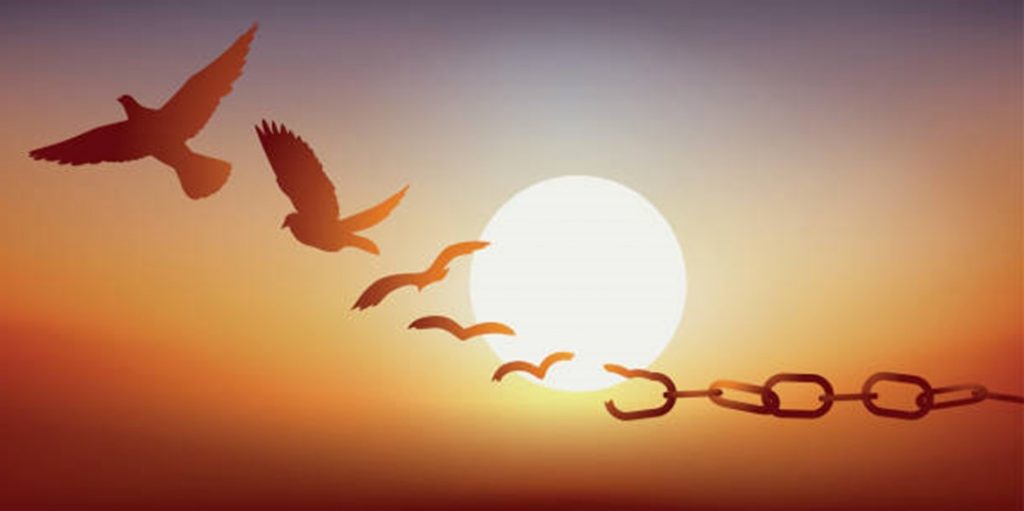
It is sometimes said that the road to hell is paved with good intentions. True.
It is also said that the devil is in the details. True.
Why are each of the world’s leaders (Ms. Jacinda Ardern, Mr. Justin Trudeau, Mr. Emmanuel Macron, etc.) calling for less freedom of expression (https://www.reuters.com/world/asia-pacific/new-zealand-pm-says-facebook-others-must-do-more-against-online-hate-2021-11-26/) in their respective countries?
What is all this about? An idea by Mr. Macron, it seems?
If you have 2 minutes to kill and you are interested by freedom of expression, like Bambi, check the words of Ms. Ardern. Aren’t they worrisome?
With all due respect to Ms. Ardern and Mr. Trudeau, Bambi will now focus on Mr. Macron (because she respects/even likes him :). Indeed, she has thanked him, on her blog, many times for his compassion with Beirutis after their surrealistic blast. He rushed to Beirut after the tragedy. He listened to the traumatized residents (for a change!). He even hugged them on the streets before their own heartless politicians. Correction, NONE of the Lebanese politicians visited any of the devastated neighbourhoods of the city, including her parents’, and reached out to the people, as Mr. Macron did, up to now!
So, with much gratitude in her heart, she will allow herself to ask him the following: Why are you all limiting the freedom of expression in your respective countries? Who has entrusted you to propose to regulate the internet like that? You may be tempted to do something, truly thinking it is a good idea (making it like a HUGE so-called safe place… of course, from your own perspective) but have you thought about the long-term impact of your authoritarianism? By the minute, we are becoming less and less free. So what will be the outcome in 2, 5, 25, and more years? Please think long-term, for the sake of your beautiful nations, and beyond your own mandates.
To conclude this post, Bambi is convinced that a liberal (with a little “l”) approach may be the wisest approach to online hate/so-called hate? Just leave the internet as it is with its good and bad side…. Of course, do so, by keeping a close eye on ALL radical/extremist groups, as needed (ending with” ism” or not). Keep an eye on online criminality (call for violence, etc.), please, to keep us safe. As well, let the police, army, and secret services, do their job, as needed (of course, with proper funding) to keep the country safe… and leave our internet free! In the name of this freedom of expression that is in danger now, Bambi will allow herself to tell Mr. Trudeau and ALL the politicians in Ottawa the following (as it is perhaps related to the rationale underlying Ms. Ardern’s call): no, to Bill C-36! This proposed bill is an unwise idea for our country, even if you genuinely think otherwise (or if you think it is to your political advantage). Thank you.

For me this is such a complex field. I’ve not yet come to a final conclusion about this issue. The danger of overreaching censorship is definitely there, and allowing tech companies like Google or Facebook / Meta to define what’s allowed to say is definitely very problematic, considering their status as quasi-monopolists. On the other hand some kind of moderation can be advisable, because the commentary sections of some channels or pages can get out of hand quickly, in a way which destroys the possibility of constructive debate. But it’s probably the best thing to do to leave that moderation power to the person (s) responsible for the page or channel, because they can decide best how to balance freedom of expression with the necessity of constructive debate. On a smaller level it’s much more obvious to people that freedom of expression and “behaving” / civility are required to work hand in hand (like when you are a visitor at somebody else’s home).
Concerning hate, yes, hate is not pleasant. I don’t like hateful speech (and arrogance) at all. If there is concrete evidence that somebody is planning on acting out this hate in a violent way so that other people’s life are in danger, it should be possible to take down a post because it could lead others to join in the violence. And the authorities should be alert. But other than that, freedom of expression should remain intact. If the expression of hate in the sense of hateful thought patterns (apart from concrete plans of violence) is censored, there’s the problem of defining what is considered hateful speech. It might just be an opinion which the censoring entity considers to be hateful by definition but in fact there’s no desire to harm anyone directly or it doesn’t even come from a place of hate at all. It might even be something that’s worthy to be discussed and thought about. Of course, the problem exists that some thought forms may not incite violence directly but by narrowing the field of thought they can lead to problems and trouble in society later and increase the polarization in society if they spread unchecked (which might happen more easily online because of its tendency of creating bubbles where differing opinions are often excluded from the discussion). Which can happen in traditional media as well. Because of that I think it’s crucial that some media should remain (or be created) which allow for a broad spectrum of approaches.
They had sort-of figured out the problem in the U.S. in the 1790s, and stated it very succinctly:
“Congress shall make no law respecting an establishment of religion, or prohibiting the free exercise thereof; or abridging the freedom of speech, or of the press; or the right of the people peaceably to assemble, and to petition the Government for a redress of grievances.”
A good idea then, and Ardern, Trudeau & their ilk are self-important if they think otherwise.